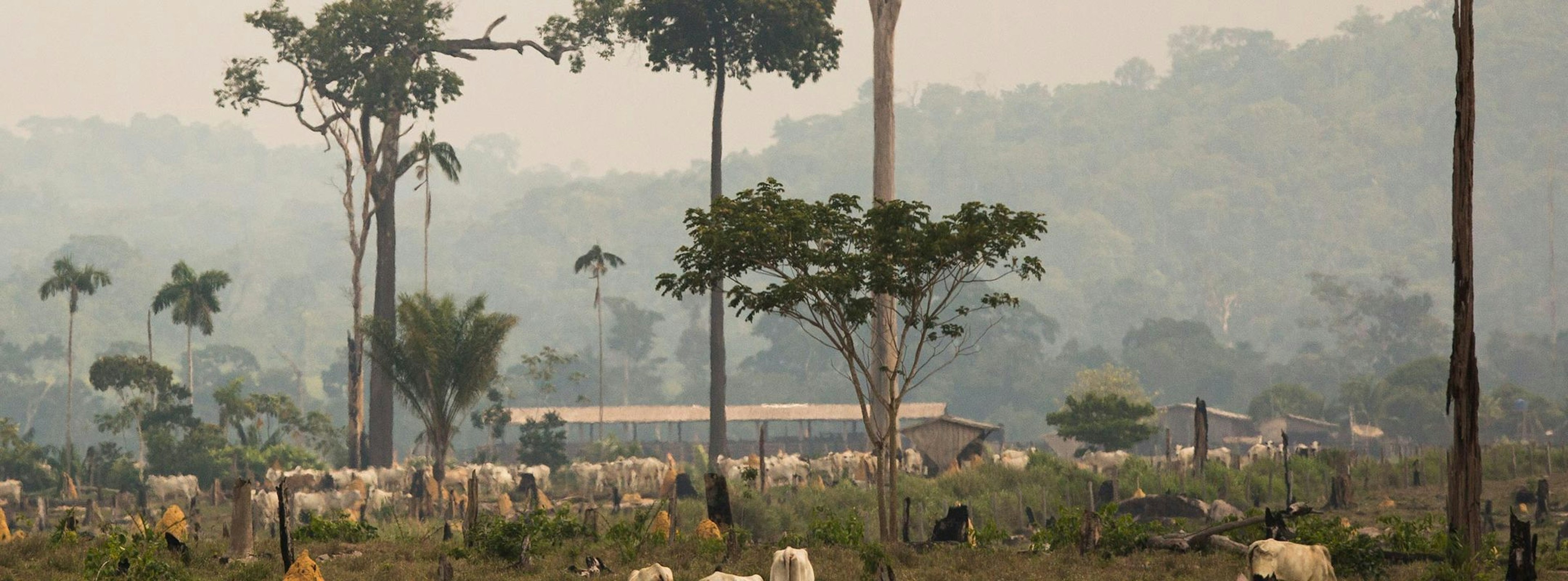Lifting of import bans increases deforestation risk
1 Jul 2020
3 min read
US companies’ exposure to deforestation risk is set to increase steeply after the US government lifted restrictions on imports of fresh and frozen beef from Brazil in March 2020.

Cattle in the Amazon, Credit: © Bruno Kelly / Greenpeace